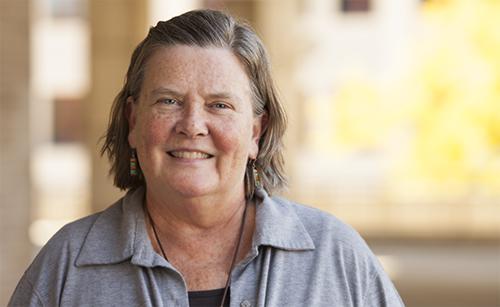
Michele Hilmes’ legacy for radio and sound studies, broadcasting history, and cultural studies is clearly profound and prodigious, but her influence extends further, as well: this quintessential cultural historian is also a profound new media scholar.
Read more »
Tags: cultural history, Discourse, historiography, media history, media industries, media studies, Michele Hilmes, new media, radio
Posted in Columns, Honoring Hilmes | 1 Comment »
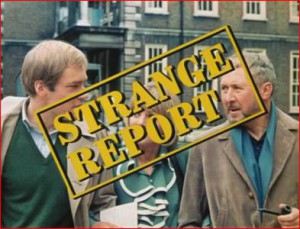
Through a case study of the British ITV series "Strange Report" (1969-70), Jonathan Bignell exhibits how Michele Hilmes' example has taught him that when we look closely at the detail of history, there are always more complex and more interesting things to discover.
Read more »
Tags: 1960s, British television, co-production, globalization, ITV, Michele Hilmes, NBC, Network Nations, Strange Report, television, transnational media
Posted in Columns, Honoring Hilmes | 1 Comment »

Michael Curtin contributes the eighth post in our "Honoring Hilmes" series, saluting Michele Hilmes on her sterling leadership and professionalism as well as her pioneering intellectual contributions to the media studies field.
Read more »
Tags: collegiality, cultural history, globalization, Hollywood and Broadcasting, media studies, mentorship, Michele Hilmes, Network Nations, Only Connect, radio voices, synergy
Posted in Columns, Honoring Hilmes | Comments Off on Honoring Hilmes: Days Well Spent
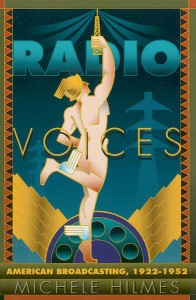
In this seventh post in our "Honoring Hilmes" series, Jennifer Hyland Wang contends that Michele Hilmes' greatest contribution to media history is her feminism, including her focus on the many women who operated in and around broadcasting as well as her mentorship of female graduate students.
Read more »
Tags: broadcasting history, feminist media studies, media studies, Michele Hilmes, radio, radio studies, radio voices
Posted in Columns, Honoring Hilmes | 3 Comments »

Josh Shepperd provides Part 1 of 2 to his final entry in the "On (the) Wisconsin Discourses" series with an examination of Michele Hilmes' contributions to discursive analysis.
Read more »
Tags: Birmingham School, communication arts, consumer activism, cultural theory, Discourse, discursive analysis, Douglas Gomery, drift literacy, Habermas, hegemony, historiography, John Fiske, Julie D'Acci, madison mafia, Media and Cultural Studies, media literacy, media studies, Michele Hilmes, Network Nations, public, public sphere, publics, radio voices, Richard Hoggart, sound studies, Stuart Hall, transnational
Posted in Columns, Honoring Hilmes | 1 Comment »
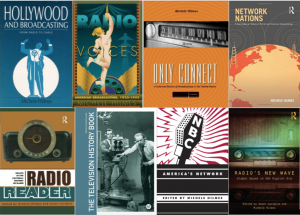
Listen to "Radioed Voices," a radio documentary/podcast paying tribute to media studies scholar and cultural historian Michele Hilmes on the occasion of her retirement.
Read more »
Tags: documentary, Media and Cultural Studies, Michele Hilmes, podcast, radio, radio studies, University of Wisconsin-Madison
Posted in Columns, Honoring Hilmes | 1 Comment »

Continuing our "Honoring Hilmes" series, Jason Jacobs describes his use of Michele Hilmes’ work in his career, demonstrating her unique capacity to work across national borders both in her thinking and interpersonally.
Read more »
Tags: BBC, broadcasting, Charles Barr, Charlotte Brunsdon, Hollywood and Broadcasting, media history, media studies, Michele Hilmes, NBC, Network Nations, television drama, television history, transnationalism
Posted in Columns, Honoring Hilmes | Comments Off on Honoring Hilmes: Across the Borders
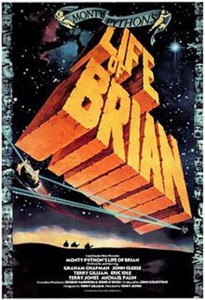
Kate Egan uses the BBFC archive to consider British local censorship history through a case study of Monty Python’s Life of Brian.
Read more »
Tags: British film, censorship, film, film culture, Monty Python, Monty Python’s Life of Brian, obscenity, Pythonesque
Posted in From Nottingham and Beyond | 1 Comment »

In the second post in our "Honoring Hilmes" series, Ben Aslinger praises Michele Hilmes for her intellectual curiosity and willingness to mentor a diverse array of students and projects.
Read more »
Tags: academic careers, advising, graduate school, media history, media studies, mentoring, Michele Hilmes, tenure
Posted in Columns, Honoring Hilmes | 1 Comment »

In the first post in our "Honoring Hilmes" series, Bill Kirkpatrick argues that the quality of Michele Hilmes’ scholarship is undisputed, yet the example of her great work alone is not why Radio Studies is now thriving. It is also because Hilmes has done the (arguably much harder) work of field-building.
Read more »
Tags: Disciplinarity, Field-building, historiography, media history, media studies, Michele Hilmes, radio, radio studies, sound studies
Posted in Columns, Honoring Hilmes | 1 Comment »

The influence and overlap between the worlds of podcasting and television (and live comedy) is expanding as visual and audio media continue to fragment, making issues of narrative construction and narrative influence ripe for questioning,
Read more »
Tags: Andy Daly, Chris Hardwick, comedy, Comedy Bang Bang, comedy television, Marc Maron, Nerdist, Paul F. Tompkins, Pete Holmes, podcast, podcasting, television, The Joe Rogan Experience, TV, WTF With Marc Maron
Posted in Columns, On Radio | Comments Off on On Radio: The Influence of Comedy Podcasts on TV Narrative, Production, and Cross-Promotion

Jack Newsinger reflects on the idea of bullshit jobs in the creative industries and what this might mean for pedagogy.
Read more »
Tags: bullshit jobs, creative industries, invisible labor, labor, New Labour, pedagogy
Posted in Columns, From Nottingham and Beyond | Comments Off on Bullshit Jobs in the Creative Industries
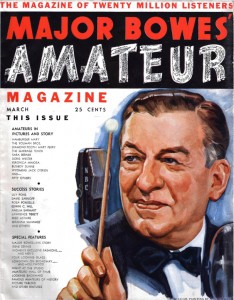
Ross Melnick provides historical context necessary to understand the prevalence of talent programs on contemporary American network television.
Read more »
Tags: amateur, Amateur Hour, Major Bowes, Roxy, Roxy and his Gang, Samuel Roxy Rothafel, The Capitol, Variety, WEAF
Posted in Radio Preservation Task Force | 1 Comment »
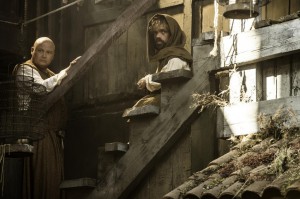
Using the case of Game of Thrones, Iain Robert Smith considers what happens to fidelity criticism when a show goes beyond the published material and starts to “adapt” material that has been planned but not yet written by the original author.
Read more »
Tags: adaptation, convergence, Game of Thrones, George R.R. Martin, novels, seriality, television
Posted in Columns, From Nottingham and Beyond | Comments Off on Game of Thrones: Adaptation and Fidelity in an Age of Convergence









